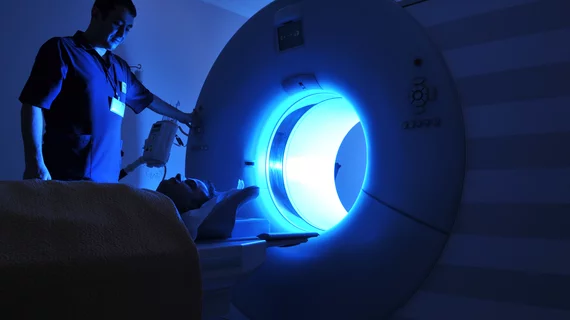A new artificial intelligence-based system is earning praise for its ability to sift through and triage the large variety of abnormalities on MRI exams, according to preliminary study findings.
Hospitals and outpatient centers are increasingly utilizing MR imaging scans to diagnose various diseases and injuries, and the upturn has caused radiologists’ workloads to skyrocket.
Researchers trying to automate this process trained and validated their AI algorithm on more than 9,000 scans gathered from organizations spanning multiple continents. And early results were reassuring enough to move ahead with real-world testing, the authors reported April 21 in Radiology: Artificial Intelligence.
"The problem we are trying to tackle is very, very complex because there are a huge variety of abnormalities on MRI," Romane Gauriau, PhD, of Brigham and Women’s Hospital Center for Clinical Data Science in Boston, said in a statement. “We showed that this model is promising enough to start evaluating if it can be used in a clinical environment."
In partnership with Brazilian medical diagnostics company Diagnosticos da America SA, the team developed their deep learning platform to automatically classify brain MRIs as either “likely normal” or “likely abnormal.”
It performed well on a separate validation dataset taken from an outside institution—a notoriously difficult task for many algorithms.
Similar models have slashed turnaround times required for identifying abnormalities on head CTs and chest X-rays and this tool may achieve comparable results, the authors noted.
With further testing, they believe it can even help physicians identify incidental findings.
"Say you fell and hit your head, then went to the hospital and they ordered a brain MRI," Gauriau explained. "This algorithm could detect if you have brain injury from the fall, but it may also detect an unexpected finding such as a brain tumor. Having that ability could really help improve patient care."
Gauriau and co-authors are currently evaluating the tool in a controlled setting with further plans to assess its value for radiologists.
Read the entire study for free here.

